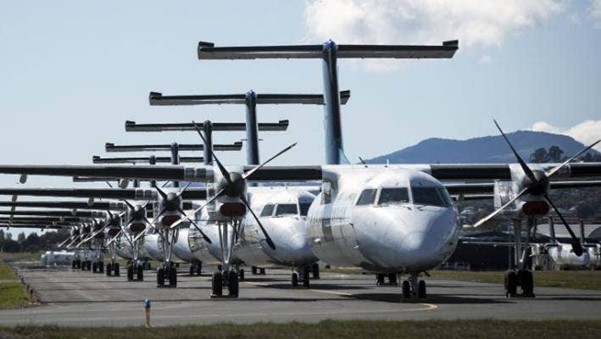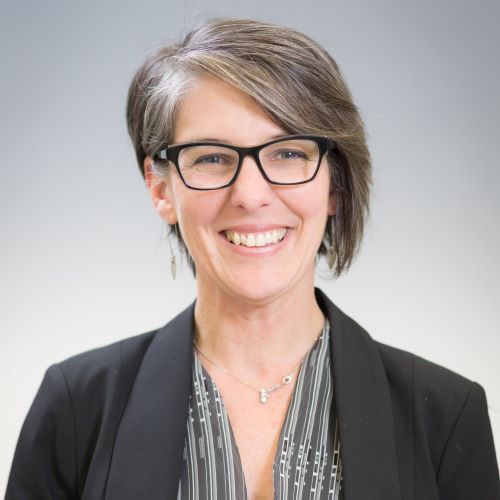Voices from the Sylff Community
Jun 11, 2021
Going Feral at Home: Reducing Academic Air Travel in a Post-COVID World
Dr. Trisia Farrelly, a 2004 Sylff fellow, writes about a series of “nearly carbon neutral” conferences organized by Massey University’s Political Ecology Research Centre, of which she is co-director. The online format of these conferences, established prior to the pandemic, presents an opportunity to reduce academics’ significant contribution to carbon emissions from international air travel.
* * *
A glimmer of light amidst the devastating fallout of COVID-19 may be seen in temporary global carbon emission reductions. While longer-term reductions are needed to see any impact on climate change, the Global Carbon Project reports that the mass grounding of flights during the peak of the 2020 coronavirus pandemic saw CO2 emissions from aviation drop by up to 60%. Across the board, and on average, the emissions of individual countries decreased by 26%. Academics contribute significantly to carbon emissions from international air travel. As an academic located in one of the most geographically isolated countries in the world, Aotearoa (New Zealand), the pandemic has forced me to critically reflect on my own air travel and that of my university.

Online conferences could significantly reduce air travel, which is a major source of carbon emissions.
“Feral” is the second of three online, nearly carbon neutral (international and free) conferences organized by Massey University’s Political Ecology Research Centre (PERC). The content of these conferences remains freely accessible on the PERC website. The first of these fully online conferences was “The Lives and Afterlives of Plastic” in 2017, and our latest conference was “Extraction” in 2019. PERC did not organize one of these online conferences in 2020, even though this was the year academics found themselves grounded and when, one by one, face-to-face academic events were being canceled or indefinitely postponed all over the world. We felt that contributing to a conference in 2020 was likely to be low down on the list of priorities for most already stressed and overwhelmed academics.
Feral was cited in Massey University’s Climate Action Plan 2020–2030 as an opportunity to reduce academic staff contributions to long-haul carbon emissions. The relatively novel format of these conferences at the time was featured in the London School of Economics blog site under the headline, “Running a Nearly Carbon Neutral Conference: Lessons from the Feral Conference.” We had no idea at the time that we would see variations of this online format proliferate under pandemic restrictions two years later—not just for conferences but to meet a wider range of needs to connect people digitally, from collegial “check-ins” to United Nations assemblies.
Peter Kalmus, climate scientist and author of Being the Change: Live Well and Spark a Climate Change Revolution, created the website NoFlyClimateSci (No Fly Climate Science)—a website dedicated to reducing academics’ carbon footprint from air travel. On the website, Kalmus states in reference to air travel, “Hour for hour, there’s no better way to burn fossil fuel and heat the planet.” There is good reason for the website’s focus on academics. Prior to the pandemic, flights taken by academics left large climate footprints. Ironically, many of these academics are climate scientists and others who teach, campaign for, and research environmental and social justice.
Academics report traveling by air for many reasons, including a need for relationship building, exposure, access to resources, and primary data collection. They also fly in response to external drivers including funding requirements and cultural expectations, capacity building, marketing, and recruitment. Conversely, some researchers claim that air travel has little impact on academics’ success.
Aotearoa is the most isolated temperate landmass in the world. This means that when Massey University staff travel internationally, it is often long haul. (Travel from Aotearoa to Australia and the Pacific Islands is considered “short haul”). COVID-19 has forced all Massey University academics to think very carefully about how and why we have traveled in the past and to consider future alternatives. In 2018, transport emissions represented 41% of Massey University’s total greenhouse gas (GHG) emissions. Of all the transport-related GHG emissions, 70% were the result of air travel. Seventy-five percent of these were long-haul flights, and most of these flights were taken by Massey’s academic staff.
In March 2019, Massey University used the carbon offsetting plan FlyNeutral to offset the air travel undertaken with Air New Zealand the previous year. A total of 4,667 tons of carbon emissions were offset through this scheme. In September 2020, seven months into the COVID-19 pandemic, Dr. Sal Lampkin, Dr. Allanah Ryan, and Professor Robert McLachlan produced a paper titled “Re-evaluating the Purpose of International Air Travel” for Massey University’s Research Committee. The paper aims to inform university governance “so they can lead the discussion within their respective Colleges/constituencies regarding a university-wide re-evaluation of the purpose of Massey’s international air travel” and to “enable them to contribute to the development of a set of recommendations.”
The paper presented the results of the analysis of staff travel for 2019. It reported that a total of 10,391 flights (domestic, short-haul, and long-haul) were made in 2019 alone and that 19% of this total (1,947 flights) were long-haul flights. These long-haul flights contributed 80% of total carbon emissions for all of Massey University’s air travel totaling 8,946,429 kg of carbon emissions. And many staff took multiple flights every year. In the College of Sciences alone, 318 staff traveled once or twice a year; 119 traveled two to five times per year; and 21 staff traveled five or more times per year (Lampkin, Ryan, and McLachlan 2020).
Once the report had been released, the authors distributed surveys, conducted three focus groups, and collated individual staff responses. Academics who were asked what they felt about reducing their travel voiced concerns about losing the value of in-person interaction, including relationship building, overcoming cultural and language barriers, promotional opportunities, and access to resources, artifacts, technology, and expertise. Sixty-five percent of staff survey respondents were aware of Massey University’s Climate Action Plan 2020–2030, which commits us to achieving net zero carbon emissions by 2030. Recommendations in the Climate Action Plan for reducing carbon from air travel includes “attending sessions via Skype,” “batching travel so it happens only once in a year for long-haul travel rather than more frequently,” and “virtual conferences like [PERC’s] ‘Feral.’ ”
During the planning phase of our first “nearly carbon neutral” PERC conference, we sought to address some challenges identified. As a network of political ecologists and academics who teach, research, and campaign for social and environmental justice, we were concerned about the environmental impact of our conference, particularly considering the geographic isolation of our host institute. We also needed to ensure we did not exclude participants and presenters based on financial and resource inequities and the potential physical and temporal burdens the long-haul air travel to Aotearoa to attend a conference would mean for some.
The formatting of the Lives and Afterlives of Plastic conference went some way to addressing these concerns: the conference required zero travel; there were zero conference fees; it was presented asynchronously over a three-week period, meaning presenters and participants could watch and respond when they were available; and time zones were a nonissue. Presenters were required to prerecord a video presentation to submit in advance of the conference. Comments and Q and A took place via an online chat function, and panel chairs kicked off and sustained online engagement in these online discussion forums. The asynchronous nature of the conference also eliminated the possibility of poor connections and lag times in live sessions where connection speeds varied.
Each new conference was designed with feedback from participants in mind. However, even the third offering of these conference formats, Extraction, did not eliminate all possible inequity issues. For example, there remained variation in the quality of the video presentations. This was likely a result of an unevenness across presenters’ access to quality equipment, high-speed Internet, and video production support.
I have seen recent examples of such digital injustice, which may be more acute in synchronous meetings where delegates have much more to lose. One example is the United Nations Open-Ended Expert Group (OEEG) meetings, which were held in February 2021. Due to COVID-19, for the first time, Pacific Islands delegates had to attend these multi-day meetings online. The meetings ran from around 10 pm until 3 am, as our part of the world had once again received the “short end of the time-zone straw.” Pacific Islands delegates reported having to travel to offices from home late in the evening so that they could access faster Internet connections (and even then, connections were often unstable). The next morning many delegates still needed to fulfill their familial responsibilities—after very little sleep—three days in a row.
PERC encourages academics to view online innovations like Feral not only as a temporary solution to the travel limitations the pandemic presents but also as a long-term solution to our shared global carbon emissions problem. We are seeing a proliferation of similar innovative models emerge out of necessity since the pandemic outbreak. However, we need to recognize, meet, and mitigate any new challenges the online transition could present for diverse attendees. These challenges include the need for human and intellectually satisfying connection, building and maintaining trust and equitable access, and cultural and gender-based considerations.
